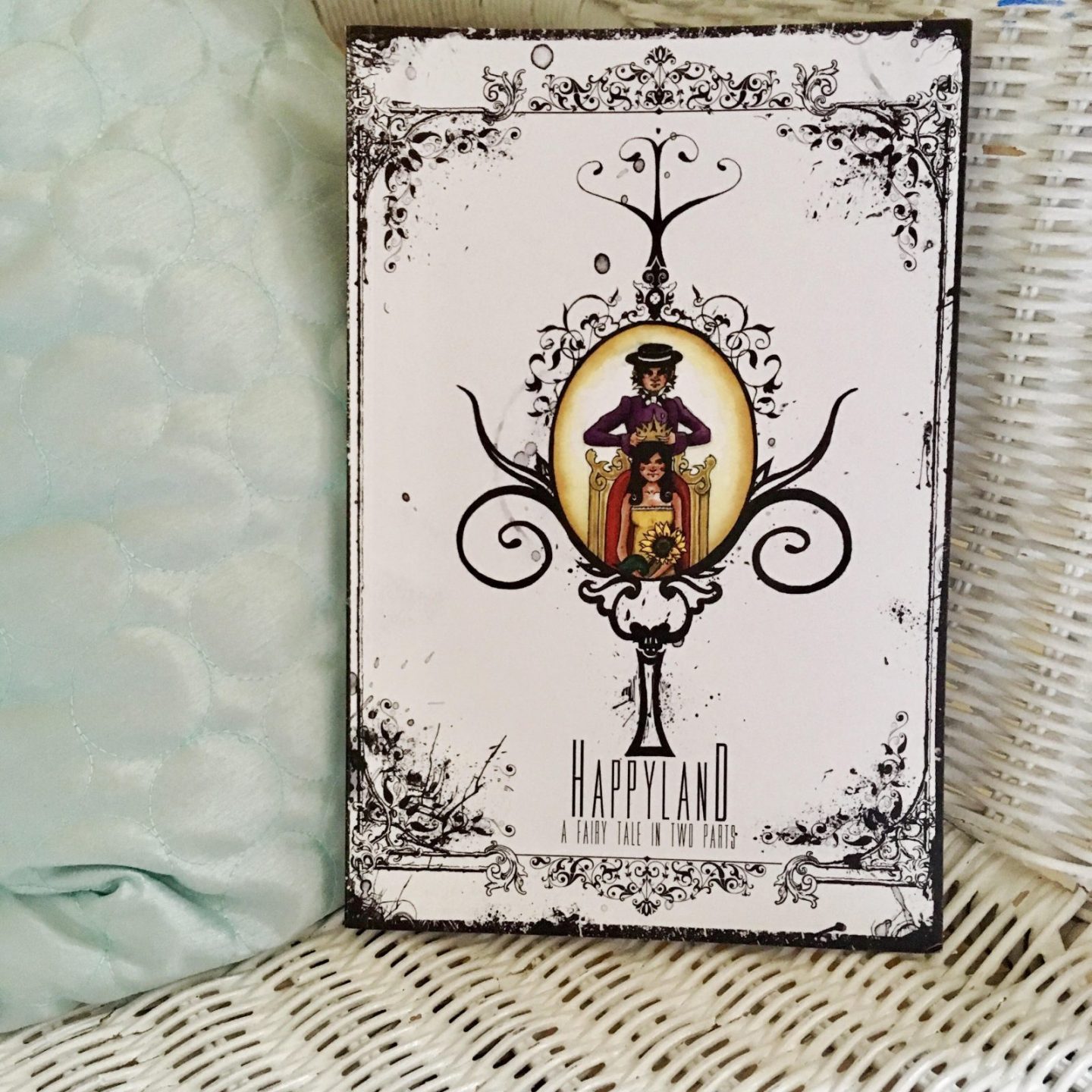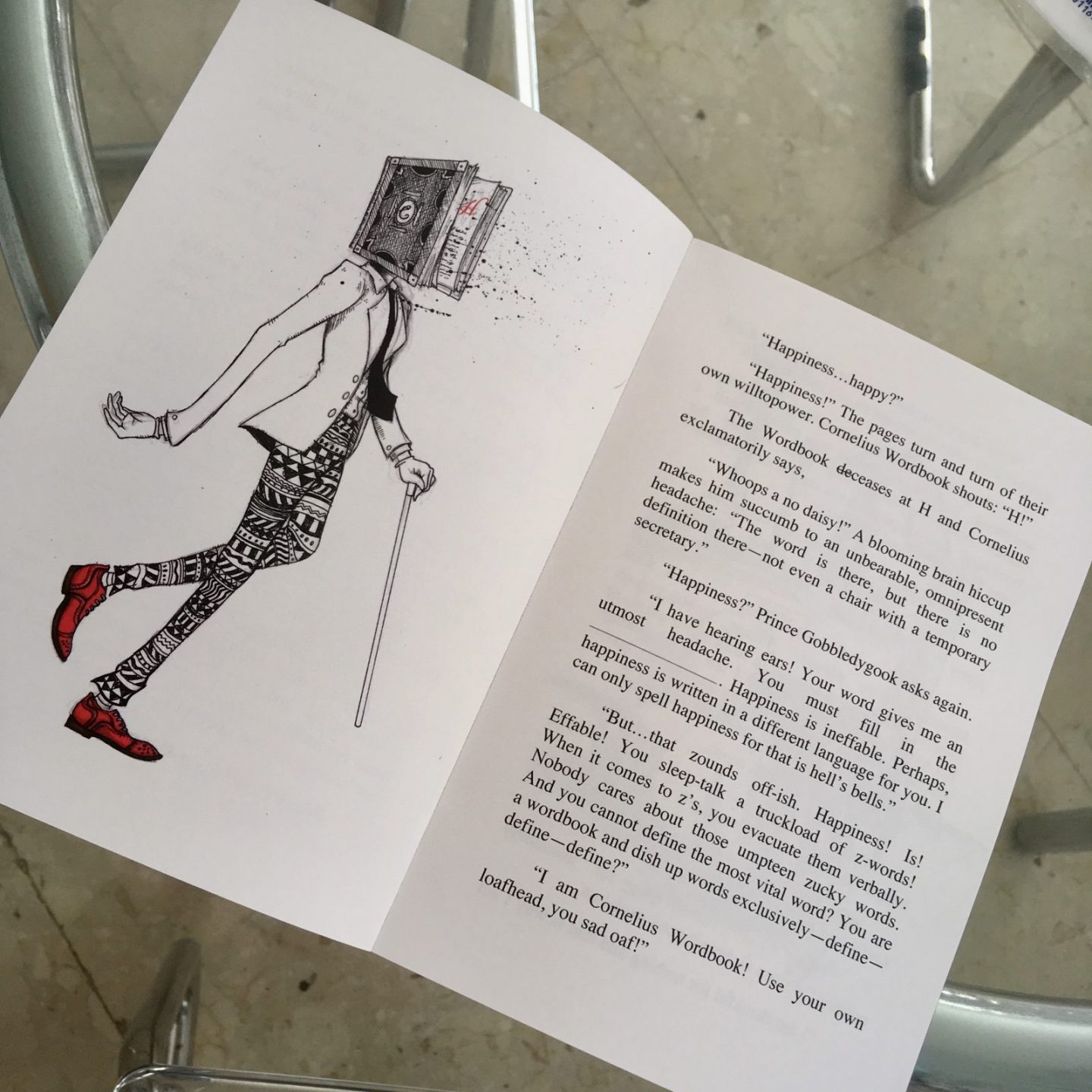
I jumped at the chance to review Happyland: A Modern Fairytale by Tesfahiwet Mekonnen. Below you’ll find my review of the original version of the book, however I’m delighted to update this post with news of the brand new Children’s Edition, which you can get your hands on here. Keep reading to see how I found it!
“Prince Gobbledygook wears his heart on his head and his headache is akin to a heart attack”.
Prior to reading Tes Mekonnen’s Happyland, I wasn’t quite sure what to expect. Modern fairytales are not a new addition to the world of books, however Happyland without a doubt stands on its own as a wonderfully weird read, filled with delightfully quirky concepts and innovative linguistic devices. Not to be confused with the kind of traditional fairy tale that sadly, many young adults may be quick to write off as ‘been there, done that’, the book is a thought-provoking yet humorous read, that will likely satisfy language lovers of a whole range of ages.
On the surface, the story tells of the inexplicably sad Lily Marshmallow, who is discovered by Prince Goobledygook and led henceforth to a promised land of sorts, known to the Prince as Happyland. Sounds pretty stereotypical, prince meets potential princess, they face a significant life event together, and live happily ever after, right? However, the story is far from being a fictional fairy tale. Instead, the characters’ journey tells of Tes Mekonnen’s own story, and his perceptions of modern society. Here’s what he had to say about how his own life experiences infuse into his book:
“Lily Marshmallow is not an object or some weak woman that requires a man to save her. She is Life. Prince Gobbledygook is in some sort of purgatory and she is his mirror. I must emphasize this—Lily Marshmallow is Life and Life doesn’t talk and we all want to fight for it. I tried to infuse my philosophy into Happyland.
Prince Gobbledygook is the now.
Lily Marshmallow is Life.
Adolfo Dumfries is Future (a cautionary tale).
Leopold Balthazar II is Past.
This story might be fictitious, but it explains my journey for seeking happiness.
Thank you,
Tes Mekonnen”

Without a doubt, my favourite aspect of the book is the attentive use of creative language. The writing is jam-packed full with linguistic devices, from double entendres and words with multiple meanings being deliberately misused for comedic effect, to plays on words creating irony and humorous character descriptions that are integral to the story. The oxymoron effects were particularly satisfying, especially the fact that the word ‘oxymoron’ was itself used as an insult later on in the book: I am now fully intent on using ‘oxymoron’ as an insult of my own, for the rest of my existence. The only occasion where I wasn’t such a fan of the linguistic irony was the use of the phrase ‘walking invalid’: as a disabled person myself, I absolutely despise the word ‘invalid’, and the inclusion of this did unfortunately have an impact on my overall impression of the book.
Regardless, the story also posed some interesting philosophical questions related to our own understanding on the concept of happiness. The story sees the characters searching desperately for the aforementioned Happyland, struggling to define and explain what this state would constitute for them, and towards the end of the book, discussing the value of happiness in relation to both money and selflessness. These instances provide a moral framework to the tale, and gently encourage the reader to think about how the events that take place in the characters’ journeys may relate to their own lives in modern society today.
If you’re concerned that the language or themes discussed in this book may be too adult or not age-appropriate, then not to worry: Tes has also recently released a Children’s Edition of the book. Though it features less explicit language and more emphasis on the character of Life, this doesn’t take away anything from the book and, in my opinion, adds an extra dimension of quirkiness to the tale.
Finally, we can’t not talk about the incredible illustrations by Anthony Resto, featured throughout Happyland. Not only is each creation absolutely stunning, they also add a valuable visual element to Tes Mekonnen’s wacky characters. A particular favourite of mine was Cornelius Wordbook, the passively aggressive and thoroughly British fictional character with a dictionary for a head:

If you say you don’t wish for such a creature to exist in real life, you’re lying. Especially if you too are a content creator who frequently ends up with their head in their hands trying to search for the word that they KNOW they know, but don’t know. You feel me? We all need a Cornelius Wordbook in our lives.
To sum up, Happyland was a completely unique read for me. The concepts addressed throughout the story do appear to have an influence from tradition yet remain evermore relevant for life in modern society, and the heavy use of linguistic devices make this book utterly incomparable to anything I’ve read before. If you’re a fellow lover of language looking for something a little different to kick start your 2018 year of reading, Tes Mekonnen’s latest creation is definitely one for you to consider.
“I have hearing ears! Your word gives me an utmost headache. You must fill in the _______. Happiness is ineffable. Perhaps, happiness is written in a different language for you. I can only spell happiness for that is hell’s bells”.
Find out more about the author by visiting Tes Mekonnen’s website, and get your hands on the original version of Happyland here. You can also find the children’s version, FOR FREE, here. Below you’ll see the details of a giveaway from the start of January 2018 which has now closed, however keep your eyes on my blog/social media for another chance to win, coming very soon!

GIVEAWAY – CLOSED. Congratulations to our randomly selected winner, Daniel Marchant!
~
This blog post is a subsidised book review, with terms agreed between the author and myself. It is always a condition of mine that anything I review on my blog will be done so honestly and with integrity, or not at all. As such, all opinions expressed in this post are entirely my own. For more content like this, be sure to check out my other bookish posts too. Thanks for reading!






18 Responses
I’m currently reading Knife by R.J.Anderson
Sounds good! How are you finding it? 🙂
At the minute I’m reading The little big things by Henry Fraser 😊
Ooh, how are you finding it? You might like to read my review of it once you’re done!
I’m currently re-reading “The Secret Garden” by Frances Hodgson Burnett. It’s such a wonderful near magical world the author creates through the eyes of a young girl. It never fails to make me smile every time I read it.
Sounds fab, I think I read it when I was much younger but would definitely love to give it a re-read!
Catcher in the rye…. Again
Great choice!
Currently reading baby books as due in March this year!
Oh how exciting! Huge congratulations!
I’m reading City of Friends by Joanne Trollop
Sounds good! Are you enjoying it? 🙂
Currently reading Lone Wolf – Jodi Picoult
How are you finding it? 🙂
Then She Was Gone by Lisa Jewell
Hope you’re enjoying it!
sounds like a good book
It certainly is!